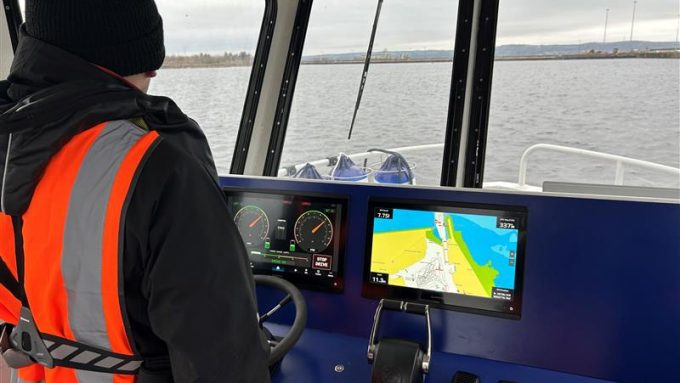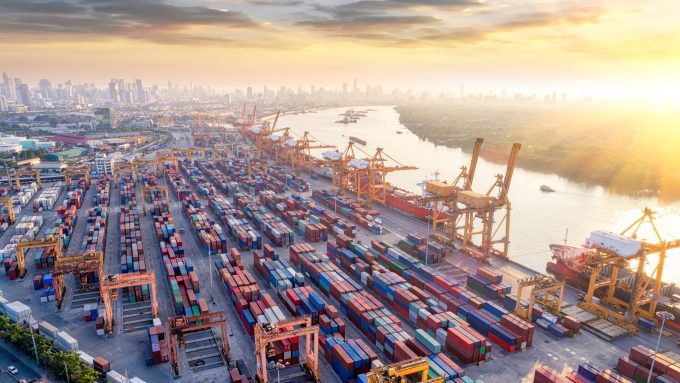
Steering a course to greener shipping
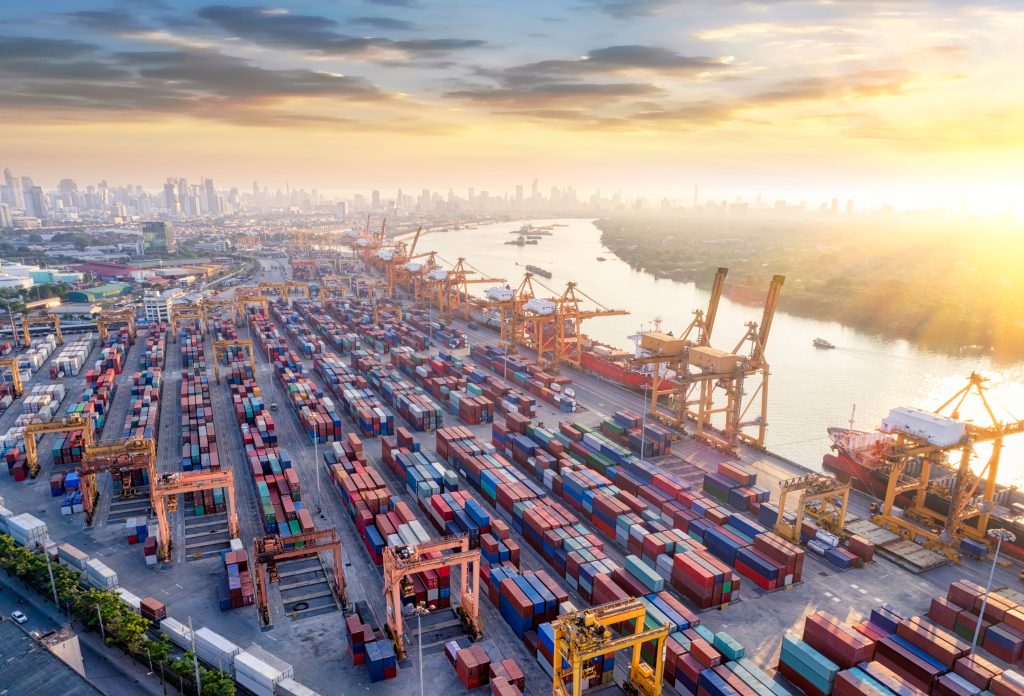
Commitment by the Government to spend £448m over four years to support technology development and systems integration to reduce emissions in shipping has been warmly welcomed by Connected Places Catapult’s Head of Maritime Technical, Mark Wray.
Funding for the programmes under ‘UK SHORE’ – the UK Shipping Office for Reducing Emissions – with support from the National Shipbuilding Office, and the Ministry of Defence’s UK Defence Innovation team, will be used to support research and development of new fuels and clean maritime technologies.
This investment follows previous rounds of UK SHORE funding that have helped over 200 projects and supported previous iterations of the Clean Maritime Demonstrator Competition (CMDC) – which has recently announced projects to be funded in its sixth cycle (CMDC 6) and announced the opening of applications for CMDC 7.
Previous initiatives backed by CMDC funding include a feasibility study into the installation of shore power facilities to accommodate hybrid or fully electric vehicles at the Port of Aberdeen; and development of a Clean Shipping Corridor between the Port of Tyne and the Port of Rotterdam using renewable e-methanol as a preferred choice of fuel.
“This new money is an exponential uplift in Government investment in research and development, and will enable a wider range of technologies to be developed – and crucially to test them in live environments as demonstrators,” said Mark.
“Now is the time for the private sector to respond and investors to get behind it. My ask is that we use this to stimulate the investment and insurance sectors to engage, and for UK companies to collaborate domestically and internationally.”Mark Wray, Head of Maritime Technical, Connected Places Catapult
Last week, the Government also announced £700m of private investment in ports to boost growth, jobs and skills in coastal towns and cities.
Coastal shipping was covered by Connected Places Catapult in a report earlier this year, which found that shifting more goods to coastal shipping can relieve pressure on roads, reduce emissions and boost regional economic growth. Mark added that more investment is encouraged in ports and harbours to help them to decarbonise by 2050.
Supporting Shipping Week
Mark and colleagues from the Catapult were out in force in the capital as part of London International Shipping Week, which concluded last Friday.
During the week, the Catapult supported an event hosted by the Society of Maritime Industries about innovation and opportunities associated with maritime autonomy, where Ashley Stehr from Stehr Consulting promoted a whitepaper produced by the Catapult called ‘Navigating innovation a regulatory sandbox framework for UK Maritime autonomy’.
Mark also spoke at an event in Westminster on Thursday to celebrate Clean Maritime Day, where he championed the efforts of SMEs developing innovation in shipping and ports.
“There is a great deal of camaraderie among SMEs in maritime, and a willingness to work together with collaborative spirit,” he told a panel session on unlocking investment into UK clean maritime.
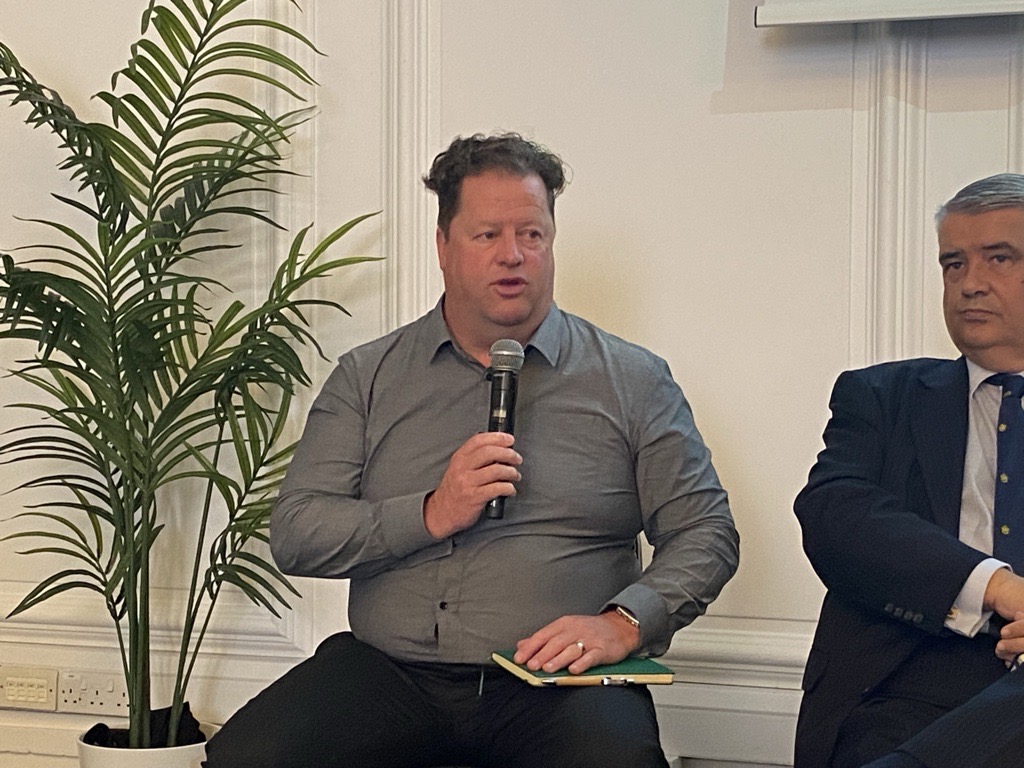
Many financial opportunities are available for SMEs to de-risk their early-stage innovations through accelerator programmes such as those offered by the Catapult, he said.
“But it becomes more of a challenge for those looking for financial help of between £5 million and £50 million. Helping SMEs to scale is where there is a gap in affordable finance.”
Mark was asked for his advice for SMEs navigating the so-called ‘valley of death’ to accelerate their technologies. He advised companies to “have a well-documented pathway, with lessons learned, and with data showing how technology is performing to inspire confidence”.
He also said that anchor customers such as ports have a major role to play in demonstrating innovation to help the sector to decarbonise, and show there is an early return; and can play a key part in making SME innovations more attractive as an investment.
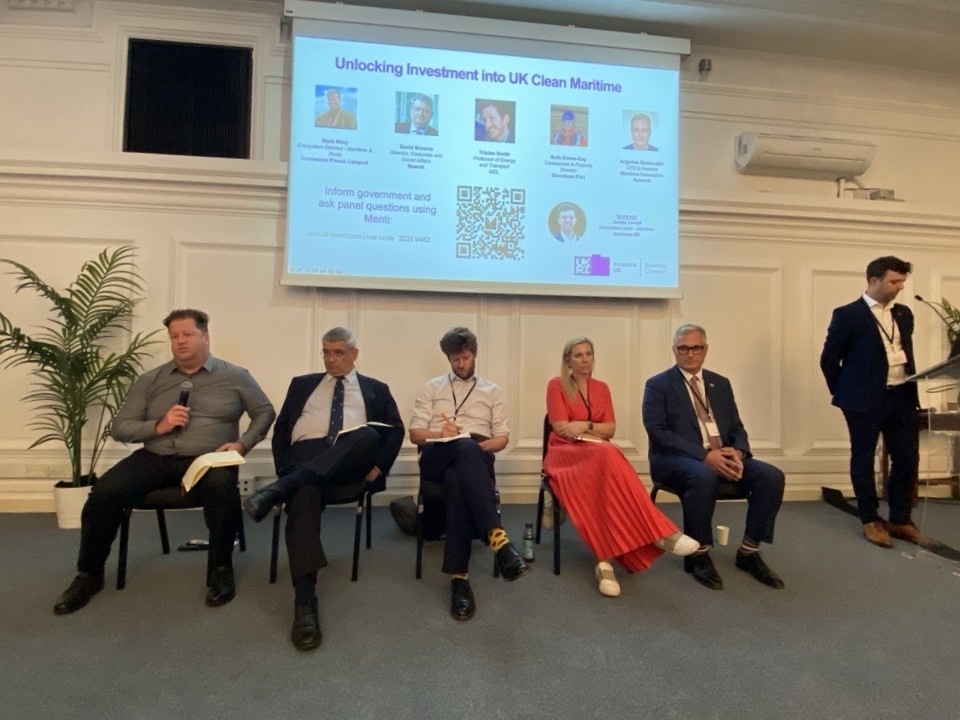
Sector viewpoints expressed
Other panellists on the unlocking investment session included David Browne, the Director of Corporate and Social Affairs at Maersk. “We believe in and have begun working on a multi-fuel, multi-technology future pathway for shipping, but we absolutely need to be working with other transport modes,” he said.
Shipping needs to look, David added, “over the other side of the quay” to the decarbonisation efforts of road, rail or air freight operations coming into a port as well. “Shipping cannot look at decarbonisation in isolation; it doesn’t stop at the ship’s rail.”
Shoreham Port’s Commercial and Property Director, Beth Evans-Gay was asked by session chair James Lovett, the Maritime Innovation Lead at Innovate UK about the importance of ports in delivering net zero.
“Ports are absolutely critical in the collective journey to delivering net zero. As national transport hubs, ports play a key part in working collaboratively with all stakeholders on both the marine and land-side to reduce emissions.”Beth Evans-Gay, Commercial and Property Director, Shoreham Port
“A recent example of this in Shoreham was the Local Industrial Decarbonisation Plan, which brought together the port, industrial tenants, academics and local councils and business in the community; working together on our net zero journey.”
Beth added there isn’t one solution to decarbonisation, but welcomed the innovations progressed through programmes such as the Clean Maritime Demonstration Competition and Zero Emission Vessels and Infrastructure – both supported by UK SHORE.
Projects capitalising on Catapult involvement
SMEs to have recently secured funding through the latest round of the Clean Maritime Demonstrator Competition – and working alongside the Catapult – include Anemoi Marine Technologies, which has developed a 3.5 metre diameter rotor sail, to deliver wind assisted propulsion for ships. Its CMDC 6 project will involve the design, build and testing of a prototype of a new folding system for its rotor sail, to improve efficiency.
Another firm drawing on expertise from the Catapult is Artemis Technologies, which has developed an electric ‘flying boat’ that lifts out of the water at high speed to reduce surface drag and ensure a smoother ride; and was demonstrated on the River Thames during London International Shipping Week. Its CMDC 6 project will involve a technical and commercial feasibility study into a ‘Green Shipping Corridor’ between Newlyn in Cornwall and the Isles of Scilly, which could see the electric ferry operate year round.
Rounding off proceedings on Clean Maritime Day, the Department for Transport’s Chief Scientific Adviser, Professional Sarah Sharples – in her last official address in the role – said it was a “privilege to witness development of UK SHORE from toddler to teenager” and that while the programme’s objectives are focused on reducing the environmental impact of maritime, “it is really important we consider jobs, growth and UK prosperity too”.
Sarah urged UK maritime to be ambitious in its efforts to decarbonise, and said the sector has much to offer.
Read Connected Places Catapult’s Unlocking the Potential of Coastal Shipping for UK Freight report, and its Maritime Future Fuel Trial and Demonstration Plan.

